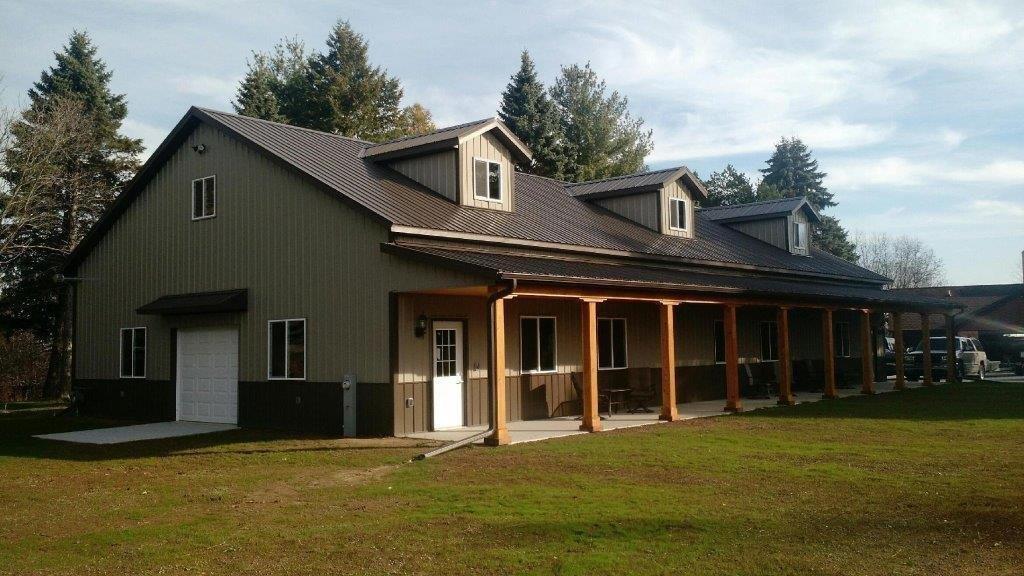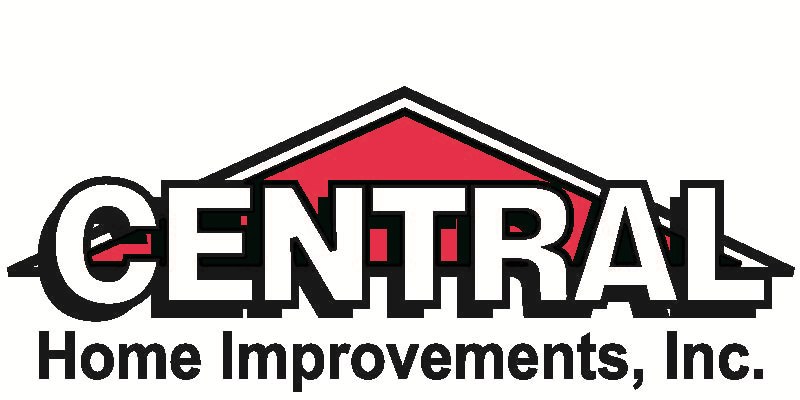
Get matched with top gas log pros in Cascade, WI
Enter your zip and get matched with up to 5 pros
Need a pro for your gas log service project in Cascade, WI?
Verified Reviews for Gas Log Service pros in Cascade, WI
*The Angi rating for Gas Log Service companies in Cascade, WI is a rating based on verified reviews from our community of homeowners who have used these pros to meet their Gas Log Service needs.
*The HomeAdvisor rating for Gas Log Service companies in Cascade, WI is a rating based on verified reviews from our community of homeowners who have used these pros to meet their Gas Log Service needs.
Last update on December 31, 2025
Find Gas log pros in Cascade
Shamrock Maintenance, Corp.
Shamrock Maintenance, Corp.
Serving PA, Shamrock Chimney will provide you with a dedicated approach to ensure your chimney is kept clean and safe. Our team provides chimney solutions for every problem, protecting homes from dangers of leaking chimneys and flues. Call us today to schedule your next appointment.
Serving PA, Shamrock Chimney will provide you with a dedicated approach to ensure your chimney is kept clean and safe. Our team provides chimney solutions for every problem, protecting homes from dangers of leaking chimneys and flues. Call us today to schedule your next appointment.

Advanced Wildlife and Pest Control
Advanced Wildlife and Pest Control
Advanced Wildlife & Pest Control is a full-service animal removal and pest control company. Our family-owned company has been serving thousands of homeowners and businesses in the Greater Milwaukee Area and surrounding counties for over 30+ years. We are the largest animal removal and pest control company in southeast Wisconsin. We stand by all the work we perform. If you are not satisfied, we are not satisfied. We are here to solve any animal or bug problem you have to offer - we love a challenge! We service all of Milwaukee County, Waukesha County, Washington County, and Ozaukee County. We also service parts of the Fond Du Lac, Racine, Kenosha, & Sheboygan counties. We offer a wide range of services including humane animal removal, rodent control, integrated pest management, insulation removal & installation, cleaning & sanitation, bird prevention, deck trenching, animal feces removal, mosquito and tick control, termite inspections, repair & preventative services, chimney cap installation, pest inspections, and dead animal removal.
"Al was on time, answered all my questions and straight to the job. I was actually surprised how quickly it went, but he assured me there'd be no worries. That was Monday, May 12th, 2025 and normally we have a spider in the ceiling corners every day. Sometimes 2 or 3 just in the kitchen area alone. It's now May 15th and I've not seen 1. Al is a character and really liked him. I'll see them again in August for a maintenance outside spray...at a really great price too!"
Bonnie S on May 2025
Advanced Wildlife & Pest Control is a full-service animal removal and pest control company. Our family-owned company has been serving thousands of homeowners and businesses in the Greater Milwaukee Area and surrounding counties for over 30+ years. We are the largest animal removal and pest control company in southeast Wisconsin. We stand by all the work we perform. If you are not satisfied, we are not satisfied. We are here to solve any animal or bug problem you have to offer - we love a challenge! We service all of Milwaukee County, Waukesha County, Washington County, and Ozaukee County. We also service parts of the Fond Du Lac, Racine, Kenosha, & Sheboygan counties. We offer a wide range of services including humane animal removal, rodent control, integrated pest management, insulation removal & installation, cleaning & sanitation, bird prevention, deck trenching, animal feces removal, mosquito and tick control, termite inspections, repair & preventative services, chimney cap installation, pest inspections, and dead animal removal.
"Al was on time, answered all my questions and straight to the job. I was actually surprised how quickly it went, but he assured me there'd be no worries. That was Monday, May 12th, 2025 and normally we have a spider in the ceiling corners every day. Sometimes 2 or 3 just in the kitchen area alone. It's now May 15th and I've not seen 1. Al is a character and really liked him. I'll see them again in August for a maintenance outside spray...at a really great price too!"
Bonnie S on May 2025

AppliancePartsPros.com
AppliancePartsPros.com
Since 1999, we've helped millions of do-it-yourselfers save money and fix their broken appliances quickly by providing quality appliance parts and free repair advice. We are only an online appliance parts retailer that offers a 365 day warranty and fast shipping. We also offer technical advice and diagnosis totally free 6 days a week. If you are interested in repairing your own appliance, please call us at 1-877-477-7278 or click live chat on our web site. We will help diagnose the problem and provide you with all the necessary information for the repair free of charge. It's better with the Pros!™ Avoid costly service calls - visit us at http://www.appliancepartspros.com
"Beware of shipping issues with this company. Ordered an ice maker installation kit on 10/10/25. Shipping was due no later than 10/20 according to company and FedEx tracking. FedEx tracking showed the package at their facility for 8 days without moving beginning on 10/15. Called FedEx 3 times. Each time they said they cannot find package and I have to contact shipper. Shipper has to make a claim, they will not mark it as lost. Called Appliance Parts Pros twice. Each time they say FedEx has to mark package lost before they will do anything. They also state they have to wait 14 days from them before doing anything because of their contract with FedEx. I don't care about their contract, I want what was ordered and paid for. Just going in circles with them and FedEX. If they shipped after 14 days it would be 22 days from that point, 32 days from the date of order if they shipped it that day. There was a deadline for installing this part before tenants arrive. They did not care, would not m"
Ron R on October 2025
Since 1999, we've helped millions of do-it-yourselfers save money and fix their broken appliances quickly by providing quality appliance parts and free repair advice. We are only an online appliance parts retailer that offers a 365 day warranty and fast shipping. We also offer technical advice and diagnosis totally free 6 days a week. If you are interested in repairing your own appliance, please call us at 1-877-477-7278 or click live chat on our web site. We will help diagnose the problem and provide you with all the necessary information for the repair free of charge. It's better with the Pros!™ Avoid costly service calls - visit us at http://www.appliancepartspros.com
"Beware of shipping issues with this company. Ordered an ice maker installation kit on 10/10/25. Shipping was due no later than 10/20 according to company and FedEx tracking. FedEx tracking showed the package at their facility for 8 days without moving beginning on 10/15. Called FedEx 3 times. Each time they said they cannot find package and I have to contact shipper. Shipper has to make a claim, they will not mark it as lost. Called Appliance Parts Pros twice. Each time they say FedEx has to mark package lost before they will do anything. They also state they have to wait 14 days from them before doing anything because of their contract with FedEx. I don't care about their contract, I want what was ordered and paid for. Just going in circles with them and FedEX. If they shipped after 14 days it would be 22 days from that point, 32 days from the date of order if they shipped it that day. There was a deadline for installing this part before tenants arrive. They did not care, would not m"
Ron R on October 2025

West Bend Glass Block
West Bend Glass Block
Locally owned & operated. 4 employees. No subcontractors. Cost is determined by the job.
"Owner came to our house for a quote and he and another gentleman completed the work in our basement. Perfect and would hire again!"
Erin H on May 2019
Locally owned & operated. 4 employees. No subcontractors. Cost is determined by the job.
"Owner came to our house for a quote and he and another gentleman completed the work in our basement. Perfect and would hire again!"
Erin H on May 2019
J Z P Construction Inc
J Z P Construction Inc
Owner operated company, specializing in roofing, siding and soffit fascia projects.
Owner operated company, specializing in roofing, siding and soffit fascia projects.

Borgwardt Construction LLC
Borgwardt Construction LLC
We have been in business since 1984, specializing in garages, poll buildings, and decks. We are a member of the BBB of WI, & we have an A+ rating. We are fully insured & bonded. We are also licensed by the State of WI. License ID# 4743&4741 We are now lead certified and practice lead safe procedures.
"Excellent experience. Work was done in a prompt, efficient and professional manner. Excellent craftsmanship and attention to detail. High quality material and workmanship. Jan and all his subcontractors were extremely easy to work with and VERY cooperative. Jan was on site quite often and communication was outstanding. Could not be happier. Highly recommended!!!!!!"
Michael D on February 2021
We have been in business since 1984, specializing in garages, poll buildings, and decks. We are a member of the BBB of WI, & we have an A+ rating. We are fully insured & bonded. We are also licensed by the State of WI. License ID# 4743&4741 We are now lead certified and practice lead safe procedures.
"Excellent experience. Work was done in a prompt, efficient and professional manner. Excellent craftsmanship and attention to detail. High quality material and workmanship. Jan and all his subcontractors were extremely easy to work with and VERY cooperative. Jan was on site quite often and communication was outstanding. Could not be happier. Highly recommended!!!!!!"
Michael D on February 2021

Dialed In Roofing & Exteriors
Dialed In Roofing & Exteriors
No matter who you are or what you do - big business or small - everyone needs a good roof over head. This idea has driven Dialed In Roofing & Exteriors to be the most dependable residential/commercial roofing company.
"WOW! 24 hours from dumpster and shingle arrival to dumpster pick up. The roof was DONE in 10 hours - I'm stunned! And I could not be more impressed with Dialed In Roofing & Exteriors and Caesar Dumpster LLC. From the beginning, they were so down to earth and helpful answering all of my questions. Thanh was amazing - he brought the drone out to take footage of the roof and walked me through what he saw up there. Because of the urgency with the 2 bedroom leaks we uncovered, they worked to get the job in the week of - and the good Lord blessed us with a beautiful day for them to work. They adjusted some of the twinkle lights and opened the back gates and everything was put back perfectly and buttoned up tight. I have found less than 10 stray nails, which is amazing! As they did tear off, they WALKED arm fulls of shingles to the higher roof line to throw into the dumpster, instead of letting it all fall over the yard. They had all sides covered with giant tarps to catch debris and keep it as contained as possible. One thing they mentioned that another company didn't, was looking in the attic crawl space for mold. I was even told by others, "oh yeah, I don't need to see it, we'll just go ahead with replacement". Thanh made sure to check out the locations of the leaks, showed me what he found and was comfortable that there was no mold issues present. Caesar Dumpster LLC snuck the dumpster into the driveway, right next to the retaining wall, with zero issues! I was so grateful to see them placing 2x4s down for the dumpster to sit on to preserve the driveway! And he came in quick this morning to remove it - nice and simple! I will rave about this process for a long time, and will recommend Dialed In anytime I have the opportunity! Thanh and crew - THANK YOU for the peace of mind you have given us!!!"
Mary B on December 2023
No matter who you are or what you do - big business or small - everyone needs a good roof over head. This idea has driven Dialed In Roofing & Exteriors to be the most dependable residential/commercial roofing company.
"WOW! 24 hours from dumpster and shingle arrival to dumpster pick up. The roof was DONE in 10 hours - I'm stunned! And I could not be more impressed with Dialed In Roofing & Exteriors and Caesar Dumpster LLC. From the beginning, they were so down to earth and helpful answering all of my questions. Thanh was amazing - he brought the drone out to take footage of the roof and walked me through what he saw up there. Because of the urgency with the 2 bedroom leaks we uncovered, they worked to get the job in the week of - and the good Lord blessed us with a beautiful day for them to work. They adjusted some of the twinkle lights and opened the back gates and everything was put back perfectly and buttoned up tight. I have found less than 10 stray nails, which is amazing! As they did tear off, they WALKED arm fulls of shingles to the higher roof line to throw into the dumpster, instead of letting it all fall over the yard. They had all sides covered with giant tarps to catch debris and keep it as contained as possible. One thing they mentioned that another company didn't, was looking in the attic crawl space for mold. I was even told by others, "oh yeah, I don't need to see it, we'll just go ahead with replacement". Thanh made sure to check out the locations of the leaks, showed me what he found and was comfortable that there was no mold issues present. Caesar Dumpster LLC snuck the dumpster into the driveway, right next to the retaining wall, with zero issues! I was so grateful to see them placing 2x4s down for the dumpster to sit on to preserve the driveway! And he came in quick this morning to remove it - nice and simple! I will rave about this process for a long time, and will recommend Dialed In anytime I have the opportunity! Thanh and crew - THANK YOU for the peace of mind you have given us!!!"
Mary B on December 2023
Wisconsin Handyman Service
Wisconsin Handyman Service
Licensed plumbler for 42 years, knowledgable in residential electrical, drywall, finish trim wood working and i can repair most all appliances. Previously a home builder/remodeling contractor. Many references available. we guarantee your satisfaction, and we won’t leave until the job is done right. We pride ourselves on the quality work we provide, while delivering great customer service! Call or click to schedule a free estimate today!
"Very knowledgeable and experienced. Excellent problem solver. Reliable and hard-working."
Alan D on March 2021
Licensed plumbler for 42 years, knowledgable in residential electrical, drywall, finish trim wood working and i can repair most all appliances. Previously a home builder/remodeling contractor. Many references available. we guarantee your satisfaction, and we won’t leave until the job is done right. We pride ourselves on the quality work we provide, while delivering great customer service! Call or click to schedule a free estimate today!
"Very knowledgeable and experienced. Excellent problem solver. Reliable and hard-working."
Alan D on March 2021

Central Home Improvements Inc
Central Home Improvements Inc
From the beginning in 1942, Central Home Improvements, Inc. has been a family-owned and operated business founded on these three simple beliefs: The customer will always come first, our associates will always do the right thing & we will always maintain the highest professional standards with superior workmanship. We provide professional and reputable service to homeowners and businesses all over central Wisconsin. Our list of services includes new roofs, roof repair, roof inspection, roof ventilation, insulation and weatherization, siding, windows, doors, seamless gutters, decks, skylights, remodeling, room additions and snow removal. All Central associates are company employees, not subcontractors, and they have undergone pre-employment drug testing and background checks. We expect our friendly, helpful and professional staff to take customer service to the highest level possible. When you see a Central crew at work, you will see skilled professionals with years of experience, superior workmanship performed in a timely manner, a commitment to safety - theirs and yours, & people who take pride in doing the job right!
From the beginning in 1942, Central Home Improvements, Inc. has been a family-owned and operated business founded on these three simple beliefs: The customer will always come first, our associates will always do the right thing & we will always maintain the highest professional standards with superior workmanship. We provide professional and reputable service to homeowners and businesses all over central Wisconsin. Our list of services includes new roofs, roof repair, roof inspection, roof ventilation, insulation and weatherization, siding, windows, doors, seamless gutters, decks, skylights, remodeling, room additions and snow removal. All Central associates are company employees, not subcontractors, and they have undergone pre-employment drug testing and background checks. We expect our friendly, helpful and professional staff to take customer service to the highest level possible. When you see a Central crew at work, you will see skilled professionals with years of experience, superior workmanship performed in a timely manner, a commitment to safety - theirs and yours, & people who take pride in doing the job right!
Kaufmann Improvements LLC
Kaufmann Improvements LLC
Here at Kaufmann Improvements we strive to achieve customer satisfaction. We guarantee quality workmanship and stand behind the work we perform. Kaufmann Improvements has 16 years experience. Please feel free to call Kaufmann Improvements for your free estimate today.
Here at Kaufmann Improvements we strive to achieve customer satisfaction. We guarantee quality workmanship and stand behind the work we perform. Kaufmann Improvements has 16 years experience. Please feel free to call Kaufmann Improvements for your free estimate today.
The homeowners guide to home care is here
From average costs to expert advice, get all the answers you need to get your job done.

Your budget for moving an electrical panel depends on the type, labor, and more. Find out the average cost to move an electrical panel.

Installing a dedicated line in your home or garage is fairly straightforward, but may have a wide range of cost-affecting factors, like materials, labor, and necessary permits.

The cost of a whole-house surge protector depends on the materials, size, installation, and more. This guide will help you budget for a new surge protector.

When you need to choose between a 100-amp versus 200-amp electrical panel, check out our easy-to-understand explanation of your home’s power options.

Flickering lights and breaker trips can be a sign that it’s time to replace a circuit breaker. Find out the cost, safety tips, and how to replace a circuit breaker.

If you want a secure, reliable, high-speed internet connection, a hard-wired solution might be for you. Here’s how to wire your house for ethernet.
- Plymouth, WI Gas log pros
- Glenbeulah, WI Gas log pros
- Fredonia, WI Gas log pros
- Waubeka, WI Gas log pros
- Saint Cloud, WI Gas log pros
- Elkhart Lake, WI Gas log pros
- Kewaskum, WI Gas log pros
- Belgium, WI Gas log pros
- Eden, WI Gas log pros
- Mount Calvary, WI Gas log pros
- Newburg, WI Gas log pros
- West Bend, WI Gas log pros
- Port Washington, WI Gas log pros
- Kiel, WI Gas log pros
- Saukville, WI Gas log pros
- New Holstein, WI Gas log pros
- Malone, WI Gas log pros
- Lomira, WI Gas log pros
- Allenton, WI Gas log pros
- 🌱 "Mow a small front yard"
- 🛠 "Fix a leaking pipe under the sink"
- 🏠 "Repair shingles on an asphalt roof"




